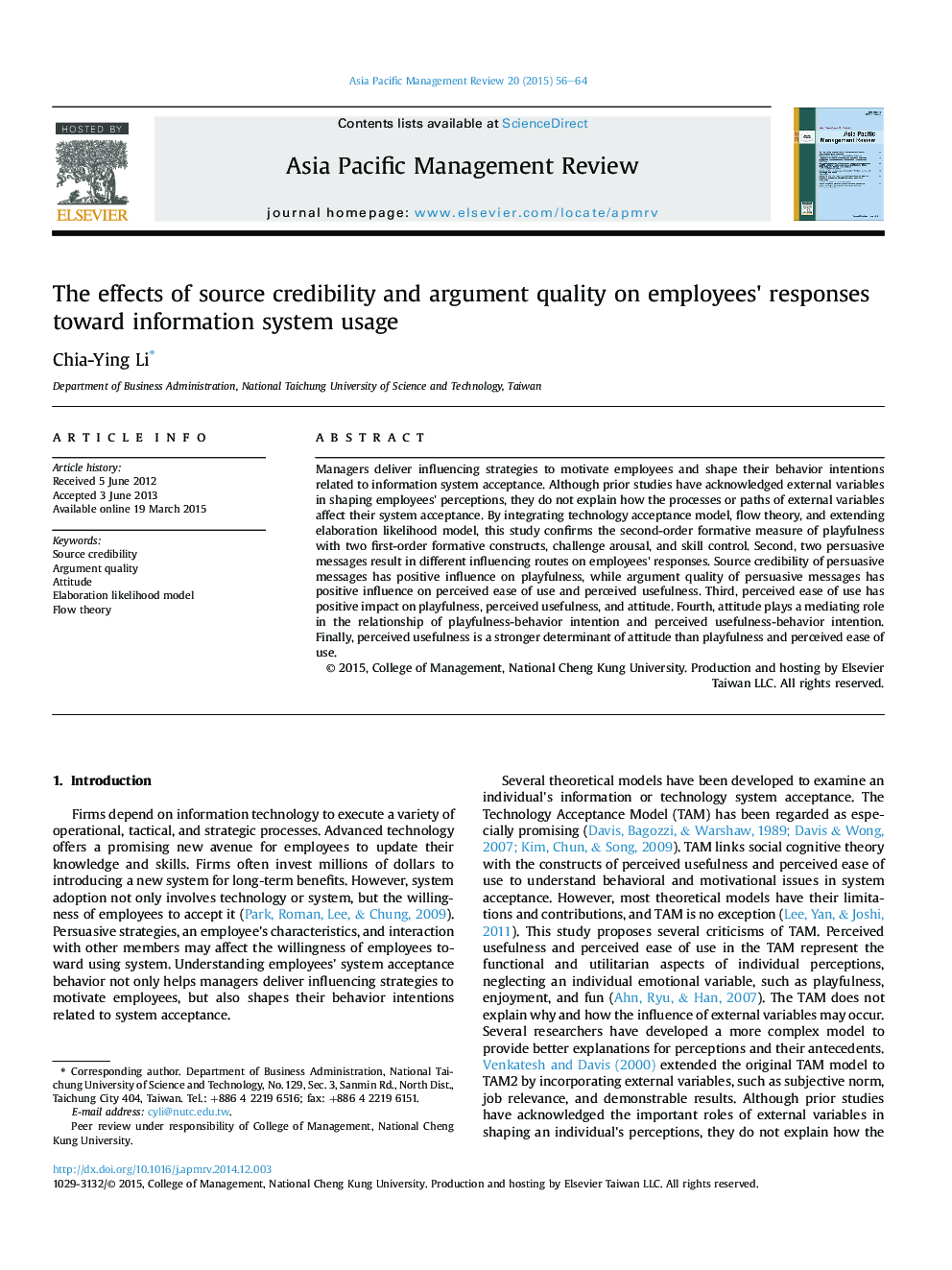| Article ID | Journal | Published Year | Pages | File Type |
|---|---|---|---|---|
| 1024240 | Asia Pacific Management Review | 2015 | 9 Pages |
Managers deliver influencing strategies to motivate employees and shape their behavior intentions related to information system acceptance. Although prior studies have acknowledged external variables in shaping employees' perceptions, they do not explain how the processes or paths of external variables affect their system acceptance. By integrating technology acceptance model, flow theory, and extending elaboration likelihood model, this study confirms the second-order formative measure of playfulness with two first-order formative constructs, challenge arousal, and skill control. Second, two persuasive messages result in different influencing routes on employees' responses. Source credibility of persuasive messages has positive influence on playfulness, while argument quality of persuasive messages has positive influence on perceived ease of use and perceived usefulness. Third, perceived ease of use has positive impact on playfulness, perceived usefulness, and attitude. Fourth, attitude plays a mediating role in the relationship of playfulness-behavior intention and perceived usefulness-behavior intention. Finally, perceived usefulness is a stronger determinant of attitude than playfulness and perceived ease of use.
